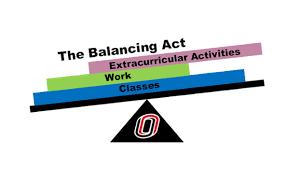In today’s fast-paced world, career progression and the balancing act of maintaining personal and professional life have become an increasing concern for individuals. It’s no secret that striking the perfect equilibrium between a successful career and a fulfilling private life can be challenging, but not impossible. This article will discuss some of the key aspects of career progression and offer some practical tips on how to strike this delicate balance.
The Importance of Career Progression
For many people, a thriving career is an essential component of overall happiness. A sense of purpose, responsibility, and professional achievement contributes significantly to our self-esteem and well-being. Career progression opportunities enable individuals to strive for growth, develop new skills, and expand their professional networks.
However, it’s also important to remember the impact of our work on our personal lives. Climbing the corporate ladder may lead to increased demand on our time, energy, and emotional resources. Knowing how to maintain a healthy work-life balance while pursuing professional growth is crucial for long-term success.
Strategies for Balancing Career Progression
1. Set Realistic Goals
Define clear and achievable short-term and long-term goals for personal as well as professional development. Be realistic about your aspirations and consider potential limitations such as time constraints or lack of support in different aspects of your life.
2. Emphasize Time Management
Proper time management is key in achieving balance in life. Utilize tools like calendars, reminders, or time-blocking techniques to dedicate specific blocks of time for work, self-care, family, friends, or hobbies.
3. Prioritize
Learn to prioritize your tasks based on urgency and importance. Identify activities that can be delegated or eliminated from your daily routine to ensure both professional performance and personal well-being remain intact.
4. Develop a Support Network
Establishing a strong support network is vital for resilience during potential setbacks in both work-life and personal life. Friends, family, or professional colleagues can provide advice, encouragement, or even connections that contribute to your overall success and happiness.
5. Maintain Flexibility
Understand that circumstances change – both in and outside of the workplace. Being adaptable to change is critical for maintaining a work-life balance. As opportunities and challenges arise, remember to reassess and revise your goals and priorities accordingly.
6. Don’t Neglect Personal Growth
A successful career rests in part on personal characteristics such as emotional intelligence, effective communication skills, and confidence. Pursuing activities outside of work that promote self-improvement will not only improve your personal life but also enhance your professional skills and capabilities.
In conclusion, career progression is an essential aspect of personal fulfillment for many individuals. However, a thriving career should not come at the expense of one’s personal well-being. By setting realistic goals, managing time effectively, prioritizing tasks, establishing a support network, maintaining flexibility, and pursuing personal growth, one can achieve a harmonious balance between professional advancement and private life satisfaction.




